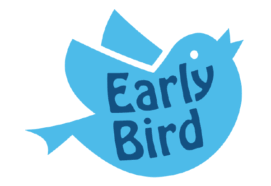Dr Cathy Laver-Bradbury is a Consultant Nurse and researcher with four decades’ experience who has worked as a paediatric, cardiothoracic and child mental health nurse, a health visitor and lecturer.
Based at the University of Southampton Cathy spreads her time between its Schools of Psychology, Medicine and Health Sciences.
Cathy previously led a master’s course in Child and Adolescent Mental Health for doctors, nurses, occupational therapists and other clinicians within the university and now spends two days per week teaching medical students on the topic.
She and a team of nurses, doctors and family therapists have worked for the last 15 years on developing the programme for medical students on child and adolescent mental health.

“The students have lectures, experiential sessions and observational sessions. We look at how to formulate, how to make sense of a child’s behaviour using different models, which could be biological, psychodynamic, cognitive-behavioural or systemic.”
As well as still working as a clinician, specialising in ADHD, Cathy has worked as a research nurse exploring interventions for preschool ADHD since 1993 alongside fellow ACAMH board member Professor Edmund Sonuga-Barke.
Now her research sits within the Developmental Brain-Behaviour Laboratory which was established in November 2003 by Edmund, who has since moved to Kings College, London.
Along with University of Southampton colleague Professor Margaret Thompson and Professor David Daley (University of Nottingham) Cathy and Edmund developed the New Forest Parenting Programme for parents whose children show signs of preschool ADHD.
Cathy explained: “The aim with the New Forest Parenting Programme was to help parents whose children present with problems at three years old because we know that unless they receive help they almost always continue have problems at eight.”
The programme includes education about ADHD for parents, explores parent-child relationships, offers advice on behaviour management and explains the cognitive processes behind certain behaviours as well as supporting positive interactions within the family system.
Cathy said some of her most memorable moments from her career so far involved those she had worked with clinically and in research: “Those occasions where you see families turned around when they’ve been really struggling are always highlights. Then you see the young person come to fruition in front of you and see parents who are so proud of them. That always touches me.”
Before setting out on her career Cathy said she knew she wanted her work to involve children, mental health and teaching and she has been doing just that for 23 years.
“I never stop learning and I love learning and that’s a passion I’m still learning, through study, through my clinical work and learning from others.”
Cathy said nurses’ training needed to better equip students who want to work in child and adolescent mental health – while there are elements of this in paediatric and mental health training they say little about working with families and the skills needed to do this effectively.
“I always think that a clinician’s job is to help the parent make sense of why their child is behaving in a particular way and have an open two-way dialogue to discuss explanations. I think that is so important and I’m not sure our training does that yet.”
Cathy said she was concerned the replacement of undergraduate nursing bursaries with student loans for tuition fees of up to £9,000 per year would reflect massively on recruitment.
“We already have major problems recruiting nurses across the country. The reward of nursing has always been working with patients and knowing you were looked after but the structure of the NHS is not one that looks after its staff anymore.
“If you’re going to care for people you have to care for the people who are caring.”
Cathy’s love of learning led her to attending many study days held by ACAMH and eventually becoming a member of its board.
“The quality of the ACAMH masterclasses and having access to leaders in the field cannot be underestimated for clinicians on the ground.
“It would be nice to see more events for clinicians working in systemic and psychodynamic therapies, in most clinical child and adolescent mental health teams you have a psychotherapist, family therapists and nurses I’d like to see ACAMH broaden its reach to those professionals too.”
Staff within CAMHS teams are becoming ever more diverse, Cathy said, and many clinicians would benefit greatly from resources that explain research in terms that nurses, occupational therapists and others can use in practice.
She added: “Not many nurses are attracted into ACAMH and I think sometimes the high level of the research documents might not feel directly relevant. Even though they are relevant when you’re a jobbing clinician with a family in front of you knowing the theory sometimes isn’t helpful but knowing how to put that into practice is.”



Discussion
Hi I am just about to leave the Army and would love to train as a mental health nurse for children and young people but the cost of tuition fees is what had prevented me from doing it. If the government brought back the bursaries I would do it in a heartbeat. At the age of 40 I have too many financial commitments now and don’t want further debt.